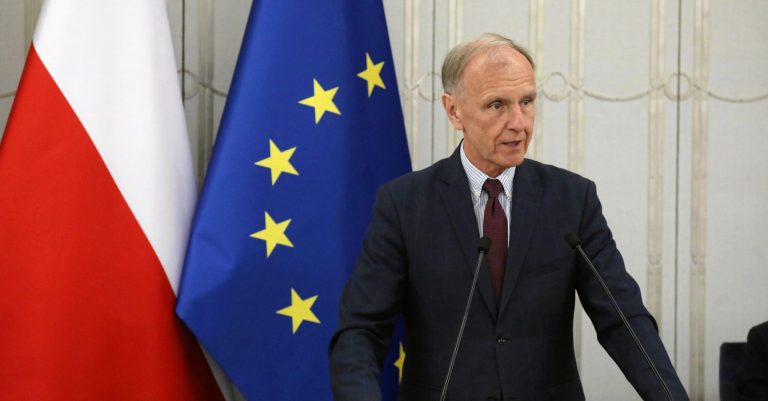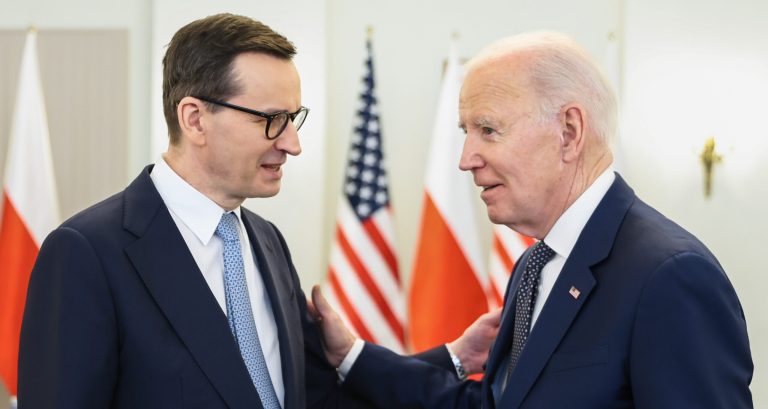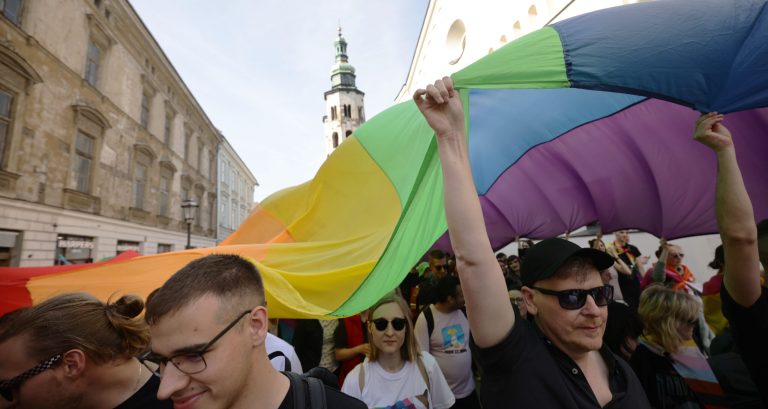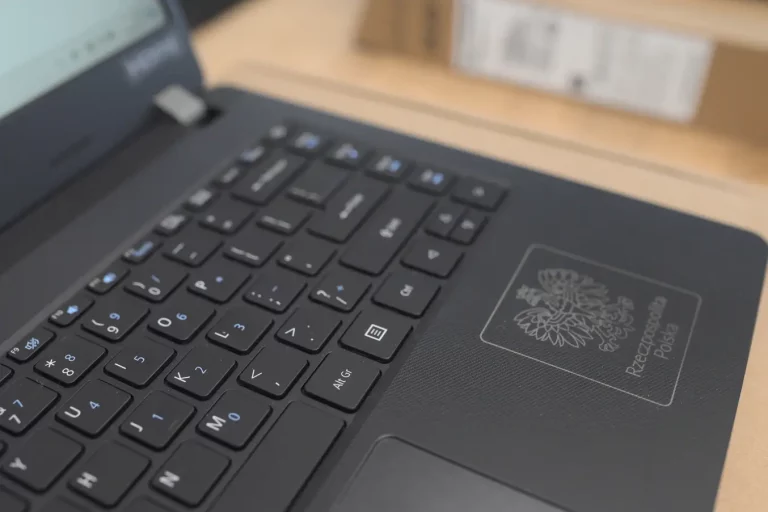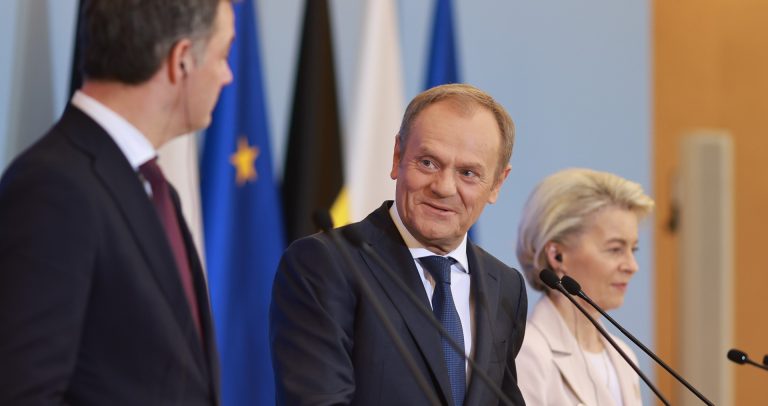Positive sentiment towards Poles among Ukrainians falls by half in two years
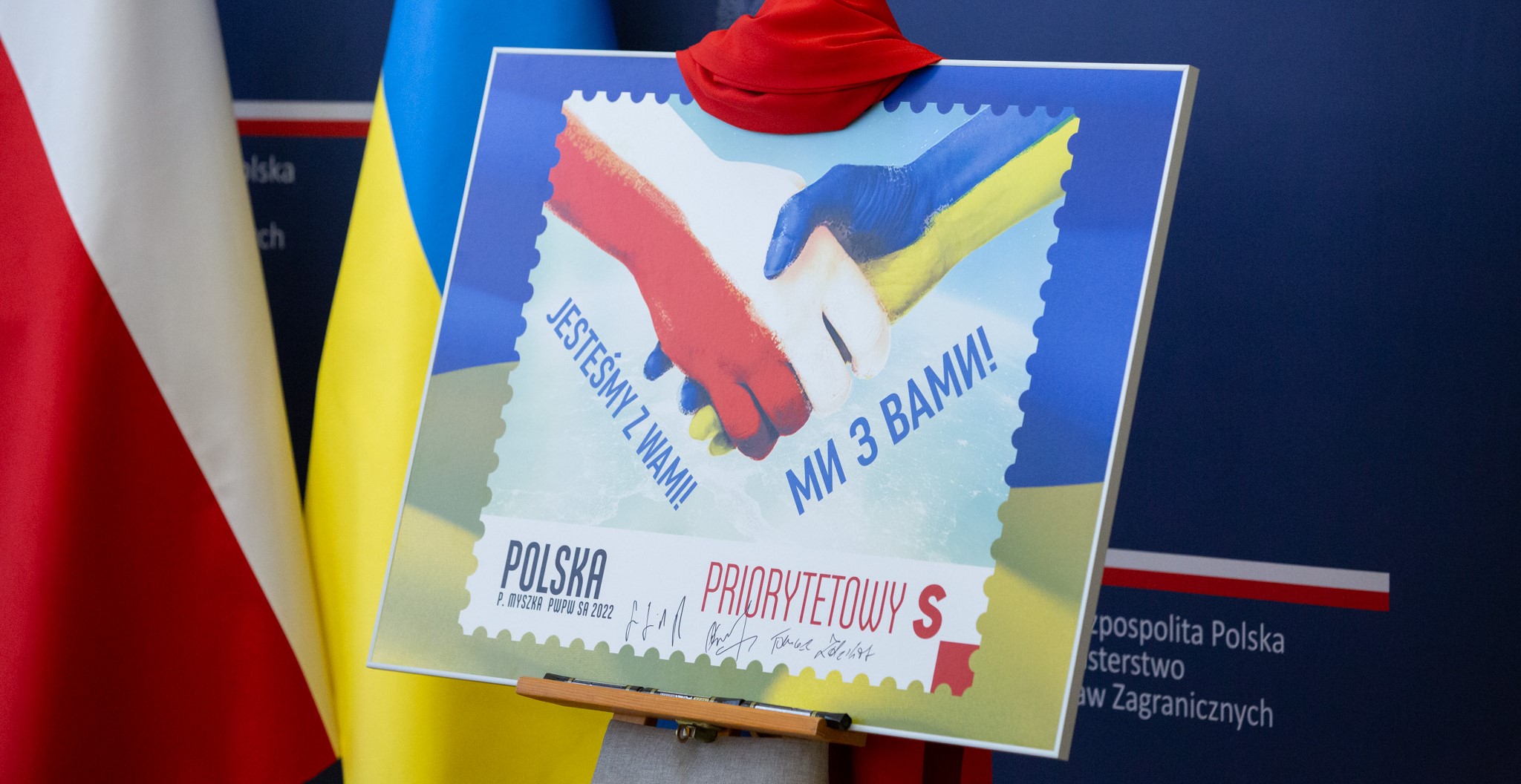
Keep our news free from ads and paywalls by making a donation to support our work!
Notes from Poland is run by a small editorial team and is published by an independent, non-profit foundation that is funded through donations from our readers. We cannot do what we do without your support.
The proportion of Ukrainians who hold a positive opinion of Poles has fallen by half in the last two years, according to a new report. Most identified border blockades by Polish farmers and the World War Two Volhynia massacres as the main reasons for disputes between the two nations.
The same study also shows that the vast majority of Ukrainians do not accept the fact that those massacres were deliberately carried out against ethnic Polish civilians on the orders of the Ukrainian nationalist leaders.
❓ Co Ukraińcy sądzą o wydawaniu polskim instytucjom zezwoleń na rozpoczęcie prac ekshumacyjnych Ofiar Rzezi Wołyńskiej? I czy uzależniają tę kwestię względem przywrócenia tablicy na grobie członków UPA w Monasterzu do pierwotnej postaci?
📊 Zobaczcie jak głosy rozkładały się… pic.twitter.com/sUzMfre9xi
— Centrum Mieroszewskiego (@MieroszewskiPL) December 12, 2024
The study, carried out by the Ukrainian Info Sapiens Agency for the Mieroszewski Centre, a Polish state institution that focuses on Poland’s eastern neighbours, has been conducted each year since 2022.
In this year’s survey, taken in November, 41% of Ukrainians said they held a very good (4%) or good (37%) opinion of Poles. That was down from 67% in November 2023 (19% very good and 48% good) and 83% in August 2022 (46% very good and 37% good).
The largest proportion of Ukrainians, 53%, now hold a neutral view of Poles, up from 30% in 2023 and 15% in 2022. Only 5% have either a bad (4%) or very bad (1%) opinion, up from 1% last year and 0% in 2022.
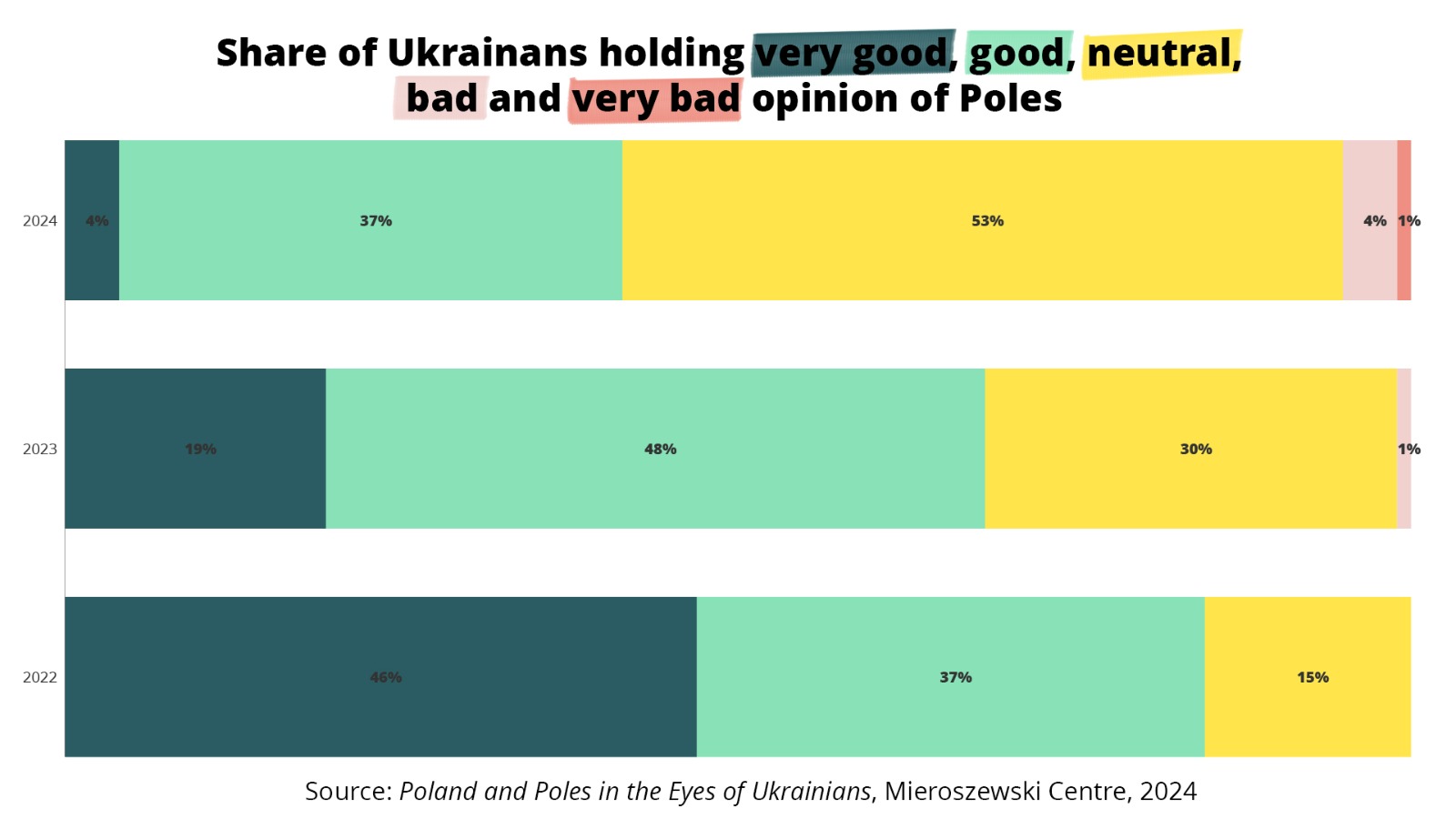
Meanwhile, when asked to choose the words that best describe the relationship with Poles, 31% of Ukrainians chose “allies”, down from 52% in 2022; 20% chose “friends”, down from 49% two years ago; and 5% chose “brothers/sisters”, down from 33%.
Asked which European country has helped Ukraine the most in terms of military and humanitarian aid during the war, Ukrainians most often chose the UK (34%) from among the options, followed by Germany (29%) and then Poland (23%). That question was not asked in previous versions of the study.
The findings echo those of another regular survey carried out by the Razumkov Centre, a Kyiv-based think tank, which showed earlier this year that positive sentiment towards Poles among Ukrainians has collapsed since 2023, amid blockades of the border by Polish truckers and farmers.
Initially, in 2022 and 2023, Ukrainian sentiment towards Poles was overwhelmingly positive, reflecting Poland’s strong humanitarian, military and diplomatic support for Kyiv and its reception of millions of Ukrainian refugees.
Net positive sentiment towards Poland among Ukrainians has collapsed from 92 a year ago to 26 now.
The same polling indicates that blockades of the border by Polish truckers and farmers are the primary cause of the decline.
For more, see our full report: https://t.co/ZVh8sJryyk pic.twitter.com/OlFHDtwwsO
— Notes from Poland 🇵🇱 (@notesfrompoland) April 22, 2024
In the new Mieroszewski Centre study, when Ukrainians were asked to identify the main cause of disputes between Ukraine and Poland, the most popular answer was “border blockade, grain crisis” (26%).
The next most common responses were “Volhynia massacres” (19%) – referring to the massacre of around 100,000 ethnic Poles by Ukrainian nationalists during World War Two – and more generally “historical disputes” (6%).
The study also asked Ukrainians specific questions about the Volhynia massacres, which Poland regards as a genocide whereas that term is not accepted by Ukraine.
Warsaw and Kyiv have in recent years clashed over the continued commemoration in Ukraine of figures linked to the Ukrainian Insurgent Army (UPA), which was responsible for the massacres, as well as the question of exhuming the remains of victims still buried in mass graves in Ukraine.
Poland’s opposition has submitted a proposed law banning glorification of Ukrainian nationalist leader Stepan Bandera.
It would place propagation of Banderism alongside Nazism, fascism and communism as a crime carrying a jail sentence of up to three years https://t.co/TZxBLIa4Mx
— Notes from Poland 🇵🇱 (@notesfrompoland) December 4, 2024
The survey found that the proportion of Ukrainians who say they have heard of the Volhynia massacres has reached 81% this year, up from 77% two years ago. The proportion who say they know the topic very well has risen from 15% to 23% over that time.
When asked to interpret what the massacres were, the largest proportion of Ukrainians, 30%, believe they were “a war between the Polish and Ukrainian underground whose victims were Polish and Ukrainian civilians”.
The second most common response was that it was “a war by the Polish underground against Ukrainians, who had to defend themselves” (13%).
Poland and Ukraine have jointly announced progress towards resolving the thorny issue of exhuming ethnic Poles massacred by Ukrainian nationalists in WWII.
Ukraine says there are “no obstacles” to exhumations and it will “positively consider” requests https://t.co/PZvuwFwZYh
— Notes from Poland 🇵🇱 (@notesfrompoland) November 26, 2024
Only 7% of Ukrainians chose the answer closest to the understanding of the massacres held outside Ukraine, in particular in Poland, that they were “ethnic cleansing of Poles, carried out on the orders of the UPA command”.
A further 11% said they were “murders of Polish inhabitants of Volhynia and Galicia committed by individual UPA units against the orders of the UPA leadership”.
Earlier this year, a deputy Polish prime minister indicated that Poland would block Ukraine’s entry to the European Union unless the issue of the Volhynia massacres was “resolved”.
In the Mieroszewski Centre, 76% of Ukrainians this year said they believed that Poland will continue to support Ukraine’s path to EU integration. That was down from 86% last year. The proportion who said they are very sure Poland will support it halved from 39% to 20%.

Notes from Poland is run by a small editorial team and published by an independent, non-profit foundation that is funded through donations from our readers. We cannot do what we do without your support.
Main image credit: MSZ (under CC BY-NC-ND 3.0 PL)

Daniel Tilles is editor-in-chief of Notes from Poland. He has written on Polish affairs for a wide range of publications, including Foreign Policy, POLITICO Europe, EUobserver and Dziennik Gazeta Prawna.


